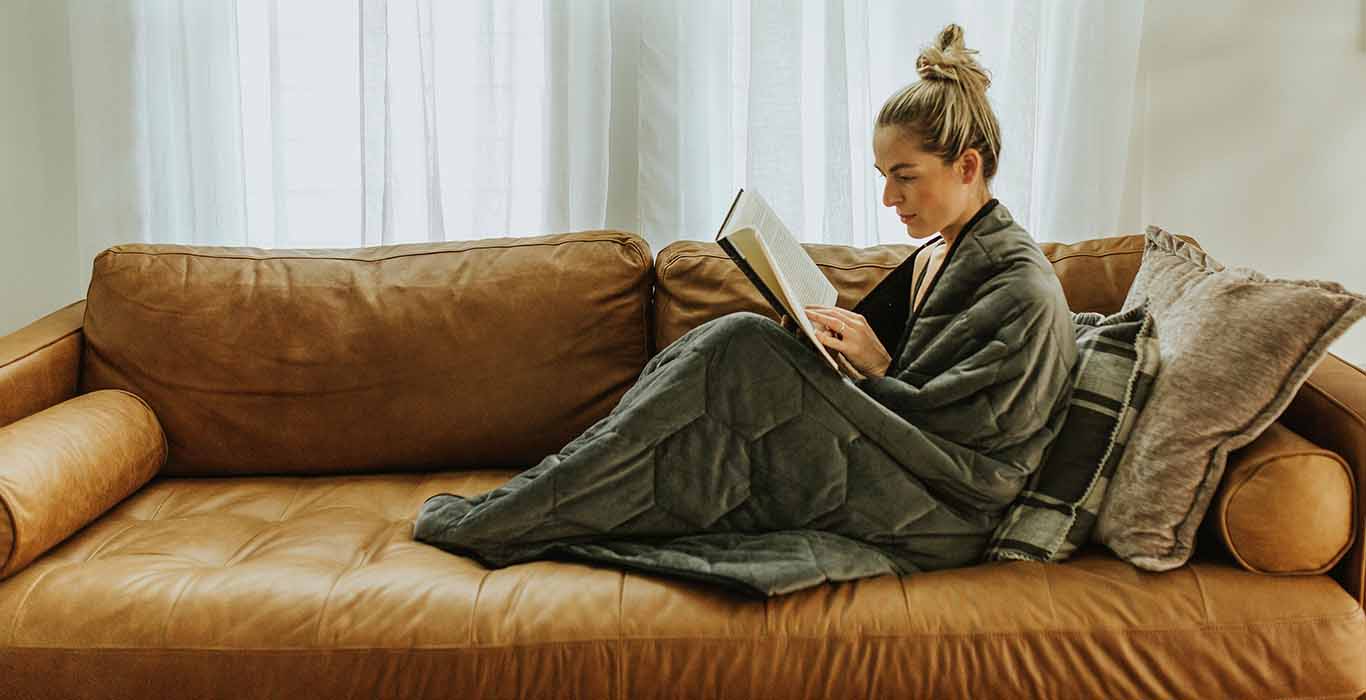But trust us, by incorporating some changes into your lifestyle, you can wake up with positivity that borders on Bob Ross levels.
Morning people: they pop out of bed full of life, and possibly even smiling. But what about those of us who can barely tumble out of bed and stumble to the kitchen a la Dolly style? If you’re a person (like us) who needs coffee before you can put a sentence together, read on for some sure-fire tips to make your mornings more enjoyable.
Why should I become a morning person?
Before we get into the nitty-gritty about how to change your routine, you might be wondering if there are any actual benefits to changing your sleeping schedule. Only about one in four adults tend to be early morning risers, while another one in four is a night owls. Everybody else is somewhere in between.
Did you know that morning people are more persistent and tend to be self-starters. They’re also less likely to drink, smoke, and be depressed. In addition, morning larks typically set higher goals for themselves, plan for the future more, and have a better sense of well-being.
In one survey, 60% of early risers woke up earlier to be more productive at work. It comes as no surprise that morning people outearned night owls in that survey. Other early risers use their extra time in the morning to get ready for the day, make breakfast, drink coffee, commute, or catch the news. And, early birds tend to keep up their early-rising habits on the weekend, only rarely sleeping in on rare occasions or because they’re sick.
On the other side of the spectrum are night owls. Late risers have their own benefits and drawbacks to consider. For example, late bedtimes are associated with negative health effects such as heart disease and Type 2 diabetes. With that said, night owls tend to be creative types who prefer to work or create during the stillness and quiet of the night. Those who prefer staying up late also have unique problem-solving abilities and score higher on general intelligence tests.
Whether you’re a night owl, a morning lark, or somewhere in between, you can’t escape the widely accepted social belief that early risers are productive go-getters while night owls are “lazy.” Frustratingly, night owls are at a disadvantage since their preferred sleeping schedule might not be possible due to strict working hours and other obligations. Most people are forced into a 9-to-5 routine regardless of their natural preferences, which means night owls might be groggier slow starters.
If you want to transition into being a morning person, it’s going to take practice, time, and consistency— especially if you’re trying to overcome a natural preference to stay up into the wee hours of the morning.
We’ve gathered some guidelines below to help you transition into a morning lark schedule.
1. Make a schedule
Sleep experts believe that the time you wake up is much more important than your bedtime. Although going to bed at a consistent time is also a part of the equation, waking up every morning at the same time provides your body with the expectation it needs to feel awake at the right time. It can be easy to fall into old habits when you’re on vacation or during the weekends but do your best to stick to your sleep schedule.
Of course, there will be some slip-ups here and there, you’re only human after all but go back into your routine as soon as possible.
Start small by moving your bedtime earlier by 15 minutes each day and wake up 15 minutes earlier. Repeat this process each night until you start waking up at your desired morning time.
2. Design a relaxing bedroom
If your bedroom is full of clutter and your bed is messy and unmade, it’s unlikely you’ll feel as relaxed as you would if you had a relaxing oasis to fall asleep in. Here are some tips for setting up a bedroom designed to promote sleep:
- Hide your technology: Whether you tuck your phone away in another room or place it in your nightstand, it’s important to have a designated space for your tech where you won’t be as distracted. Put away those blue-light emitting devices an hour to two hours before you go to bed to avoid disrupting your circadian rhythms.
- Invest in a high-quality mattress: A copper memory foam mattress might be the right choice to help you sleep. The Layla copper mattress offers sleepers plush memory foam with two firmness levels, so sleepers can decide their customized sleeping experience.
- Consider a weighted blanket: A weighted blanket offers myriad benefits including reducing the symptoms of restless leg syndrome, calming ADHD, and relieving anxiety. A weighted blanket can make a huge difference in the quality of your sleep.
- Cover small LED lights with light-blocking stickers: You might be surprised by how much light small power buttons from your laptop and other status lights affect the amount of light pollution in your room. If there are bright LEDs that keep you from sleeping, use light-blocking stickers to dull their luminescence.
- Add a diffuser to your room:Adding a diffuser filled with calming essential oils to your bedroom setup is a smart idea. Choose calming scents like lavender, vanilla, or eucalyptus.
- Consider adding some low-maintenance plants: Not only do plants in the bedroom help you create a calming aesthetic, but they’re also good for you. The simple nighttime routine of winding down and taking care of your plants can help you feel less stressed. Need a low-maintenance plant rec? Pothos Ivy is an air purifying plant that is fairly hard to kill and can thrive in a variety of lighting conditions.
- Add a relaxing white noise machine: There’s a balance between distracting noise and the level of noise that helps you drift off to sleep. If you’re somebody who needs a little noise in the background to feel relaxed and ready to sleep, consider investing in a white-noise machine.
3. Open the blinds
Natural light will help you adjust to being awake in the morning. So, open those curtains and blinds and soak in the day. If you have to wake up before the sun has risen, consider investing in artificial light that mimics natural light. You might be surprised by how well it helps your brain snap into action.
Give yourself time to adjust to the light, you’ll start feeling more awake in just a few minutes.
4. Focus on eating protein
A breakfast of heavy carbs is only going to slow you down. Stick to high-protein foods that will keep you from feeling bogged down and groggy. Protein will deliver sustained energy so you can enjoy feeling your best.
Here are a few protein-forward breakfasts you may want to consider:
- Smoked salmon on a bagel
- Overnight oats with blueberries
- Breakfast wrap
- Smoothie with protein powder
5. Resist snoozing
Your willpower is likely a little low when you wake up in the morning. In order to get into the habit of getting out of bed when the first tones of your alarm start, don’t snooze your alarm. Although it’s tempting to get just “five more minutes,” it’s not going to do you any favors and might end up making you feel even groggier.
If you really want to make sure you get up out of bed, place your phone or alarm clock far away from your bed so you have to physically get up to turn it off.
6. Get moving
When you exercise immediately after you wake up, it’ll get those happy endorphins flowing and help you feel more alert. Morning exercise can also lower your blood pressure, reduce stress and anxiety, and help you sleep better at night. Daily exercise also helps ease inflammation and joint pain, especially if you’re waking up with back pain.
7. Avoid naps
Although we love a good nap, when you’re adjusting to becoming a morning person, it’s important to feel tired during the day, so you’re ready to fall asleep earlier at night. If you’re feeling the urge to nap, resist and wait until bedtime.
Final Notes
If you’re dead set on stopping your bad habits of binging Netflix into the early AM and dragging yourself out of bed each morning, using these tips to learn how to become a morning person can really help.
Remember to stick to a consistent schedule and don’t give up after a late night or two, and with a mattress in a box from Layla Sleep, you can become the confident morning person you’ve always wanted to be.



